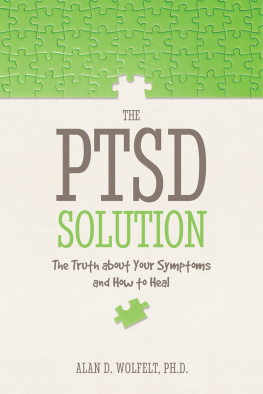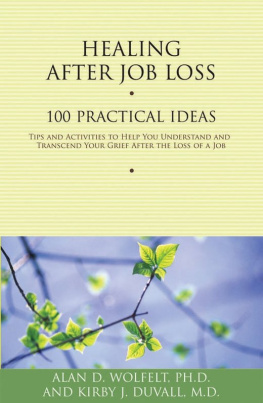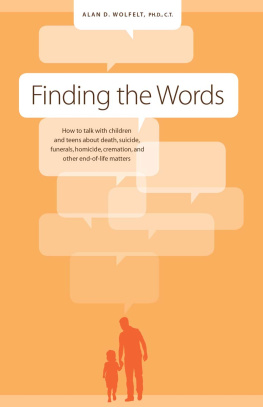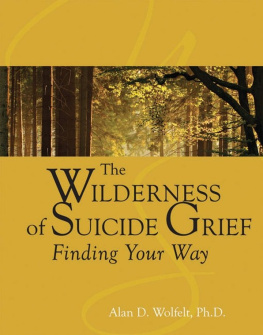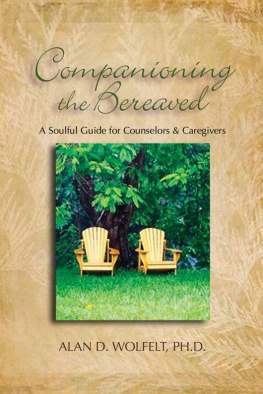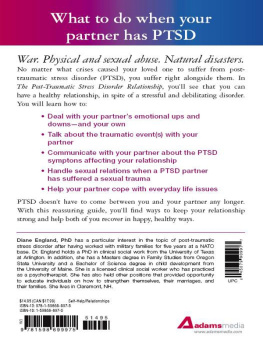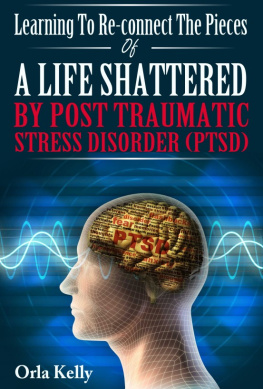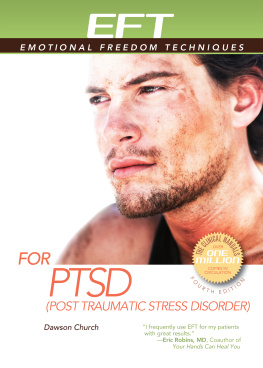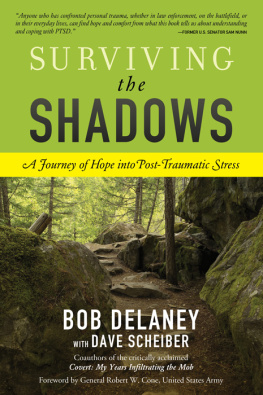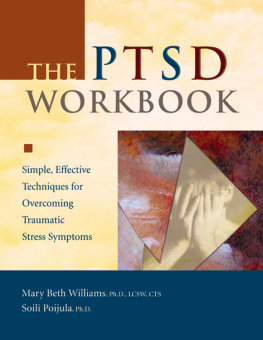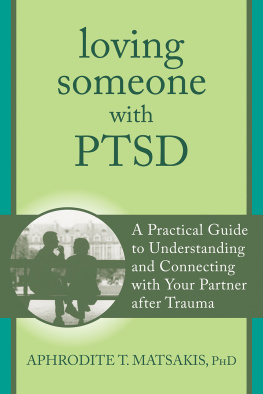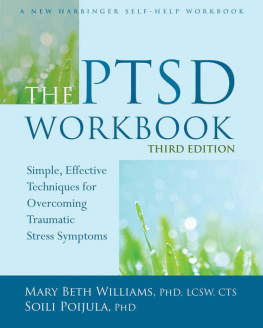
Also by Dr. Alan Wolfelt
Healing A Friends Grieving Heart:
100 Practical Ideas for Helping Someone You Love Through Loss
Healing Your Grieving Heart: 100 Practical Ideas
The Journey Through Grief: Reflections on Healing
The Mourners Book of Hope: 30 Days of Inspiration
Reframing PTSD as Traumatic Grief:
How Caregivers Can Companion Traumatized Grievers Through Catch-Up Mourning
Understanding Your Grief:
Ten Essential Touchstones for Finding Hope and Healing Your Heart
Companion Press is dedicated to the education and support of both the bereaved and bereavement caregivers. We believe that those who companion the bereaved by walking with them as they journey in grief have a wondrous opportunity: to help others embrace and grow through griefand to lead fuller, more deeply-lived lives themselves because of this important ministry.
For a complete catalog and ordering information, write, call, or visit:

Companion Press
The Center for Loss and Life Transition
3735 Broken Bow Road
Fort Collins, CO 80526
(970) 226-6050
www.centerforloss.com

2015 by Alan D. Wolfelt, Ph.D.
All rights reserved. No part of this publication may be reproduced, stored in a retrieval system, or transmitted in any form or by any means, electronic, mechanical, photocopying, recording or otherwise, without the prior permission of the publisher.
Companion Press is an imprint of the Center for Loss and Life Transition, 3735 Broken Bow Road, Fort Collins, Colorado 80526.
Printed in the United States
23 22 21 20 19 18 17 16 15 5 4 3 2 1
ISBN: 978-1-61722-226-9
To all for whom the cloud of PTSD has not yet lifted.
My hope is that this book offers you hope for your healingThere can be light.
CONTENTS
FOREWORD
Many days I wonder if my PTSD will ever get better. Do I really want to keep going? Real sleep seems only an illusion, and the thought of falling asleep brings extreme fear and anxiety. In sleep I lose all control of which world I will enter into. Flashbacks make me feel like I am reliving the trauma. All of the sights, sounds, smells, tastes, and touch seem real.
Growing up in a military family and culture, I learned that the way you deal with the pain and suffering from trauma was to suck it up. I was taught that emotions were for the weak. Independence and self-sufficiencytheyre for the strong. Life is about winners and losers. Hardcore scientific fact and logic are the only reality. Religion and spirituality just get in the way of winning. The only moral compass you need is your gun.
Then one day love entered my life, changing my whole understanding of the world. Her name was Carolyn. She gently and patiently helped me find a new moral compass, and through the many years of our marriage, my faith and spirituality began to grow and mature. My very soul changed. I had life purpose, joy, hope, and most of all, love.
Carolyn died suddenly a few years ago from cancer. Her death marked the beginning of another life chapter, one full of depression, anxiety, fear, anger, suicidal thoughts, and sleeplessness as well as loss of friends, hope, joy, and love. My very soul felt like it had been torn apart.
Eight months after Carolyns death, I retired after completing more than 30 years in the military. Back in 2003 Carolyn and I had started a foundation that provides financial grants to wounded vets and training for caregivers. After she died I was ready to end that mission and simply retire into my grief and pain until the end of life came.
What I did not know then was that trying to deal with Carolyns death would only be the tip of the iceberg of my carried grief. Within me were nearly 60 years of stuffed trauma and the culture of war. My ability to keep all that unmourned grief in a nice, neat, secure box was about to end. All of the demons from my past were about to revisit me in a way that I had no control of. I remember telling myself I had three choices: to end my life now; live in my pain until some natural death took me; or maybe find answers to the questions of why.
I chose to ask why and began a journey of discovery. That journey led me to Dr. Alan Wolfelt.
My doctors had become concerned when my grief over Carolyns death lasted longer than was considered acceptable. They told me I had post-traumatic stress disorder. How could I have PTSD? Through my foundation I worked with veterans every day who had PTSD, but never did I expect that I would be labeled with such a dreaded and stigmatized disability.
Dr. Wolfelts teaching and philosophy helped me to understand what trauma is and how it injures us physically, cognitively, emotionally, socially, and spiritually. He helped me to see how traumatic grief can affect our thoughts, feelings, and behaviors.
Most of all, he helped me find a path to healing my traumatic grief. He has helped me find hope again, and with a new hope, discover a way forward to a new me. Signs of joy are returning. I am also now able to better help others dealing with traumatic grief. Life has new meaning.
The veterans I work with often ask me about the hopelessness they feel. They wonder how could I ever find hope, joy, and love again after all that I have done and gone through. I share with themand I will share this with youthere is a way.
The healing of my traumatic grief began when my friends, family, and doctors helped me to borrow hope from them. When I had no hope or joy, when severe depression kept me from wanting to live, they came and shared the hope that they had in me and for me. I borrowed their hope, which has now become a new hope within me. You, too, can find a new hope. You can find a new joy. You can find a new love.
This book will guide you there. If you are feeling hopeless, then please borrow my hope for you. There is a way to find and sustain your healing as you begin to discover the truth about traumatic grief and why you are suffering. Allow the healing to start now. My thoughts and prayers are with you.
Michael Cash
Founder/CEO, Operation Family Fund
PREFACE
Understanding and helping people in grief is my lifes work. As a teenager who had come to experience my own life losses, I set out to discover the principles that help people heal in grief. I earned a masters degree in psychology and then a doctorate. I completed my internship in clinical psychology at the Mayo Clinic. During these years, I also began to counsel grieving families, so that I could learn up close from grievers and those who care for them.
A culture that insists on seeing suffering as pathology, that is ashamed of suffering as a sign of failure or inadequacy, a culture bent on the quick fix for emotional pain, inevitably ends up denying both the social and spiritual dimensions of our sorrows.
Miriam Greenspan
Grieving people taught me a lot about authentic grief and mourningboth then and in the nearly 40 years since Ive spent as a grief counselor and educator. What my formal schooling tried to teach me, on the other hand, was often less helpful. You see, according to the medical model of psychological theory, grief can be considered an illness that with proper assessment, diagnosis, and treatment can be cured. It is this same medical model, of course, that has informed and crafted our current understanding of the disorder or illness that is PTSD.
Next page
